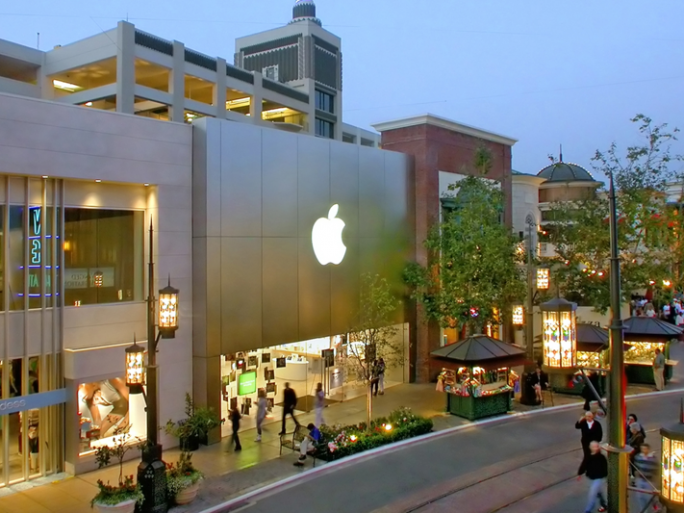Apple Staff In Flagship NY Store Begin Steps To Unionise

Trouble for Tim? Staff at Apple’s flagship New York store at the Grand Central Terminal begin process of unionising, say organisers
Staff at Apple’s flagship store in New York are taking the first steps to organise a trade union, at least according to the process organisers.
According to CNBC, the organisers are calling themselves the Fruit Stand Workers United (FSWU) and are said to be working for Apple retail workers at the company’s flagship Grand Central Terminal store in Manhattan.
During the Coronavirus pandemic, Apple initially closed most of its 510 stores around the world, but it did re-opened many of them in 2020 despite the ongoing pandemic. Visitors did have to take precautions (wearing masks, submitting to temperature readings, limiting numbers etc).
![]()
Trade union
There were reports of some unhappiness among Apple retail staff over this, especially as Apple corporate staff were allowed to work from home for nearly two years, until just this month.
In December last year, Apple closed its stores in New York City to casual shoppers as infections from the Omicron variant of Coronavirus continued to rise.
Apple closed its stores at 11 locations in Manhattan, Brooklyn, the Bronx and Staten Island, but the stores were not completely closed down like during previous lockdowns.
Now according to the FSWU website, Apple retail staff at the New York’s Grand Central store take steps to unionise, and organisers are in the process of collecting signatures from workers.
Staff there are apparently seeking to be represented by Workers United, an affiliate of the Service Employees International Union, which has overseen the successful union efforts at some Starbucks stores in the US.
“A Union at Grand Central will provide job security through a negotiated ‘for cause’ provision; it will provide additional resources to all workers such as mortgage financing; but most of all, it will fulfill three pillars we always sought during this movement: better pay for all covered workers, more robust benefits, and a thorough analysis of our work conditions, mainly relating to health and safety,” said the website.
The FSWU is seeking a minimum $30 for all workers.
The US federal minimum wage for covered nonexempt employees is $7.25 per hour.
It seems that the FSWU organisers will determine the level of unionisation support at their Apple store by collecting authorization cards from workers. It’s a key step before filing a union petition with the National Labor Relations Board.
Besides demanding higher wages, the FSWU is demanding and greater bargaining power with Apple over benefits, workplace safety and other employment matters.
The group pointed to how Apple, the most valuable company in the world, has seen its fortunes grow, while “its retail workers live precariously.”
“Grand Central is an extraordinary store with unique working conditions that make a union necessary to ensure our team has the best possible standards of living in what have proven to be extraordinary times with the ongoing Covid-19 pandemic and once-in-a-generation consumer price inflation,” said the FSWU organisers.
Apple response
Meanwhile an Apple spokesperson told CNBC in a statement that the company offers “very strong compensation and benefits” for full-time and part-time employees.
Apple pays its retail workers a starting wage of $20 per hour and provides benefits such as parental leave and stock grants.
It also expanded sick days and other benefits for US retail workers earlier this year.
“We are fortunate to have incredible retail team members and we deeply value everything they bring to Apple,” the spokesperson was quoted by CNBC as saying.
The unionising process at this particular Apple Store comes after workplace activism grows across the United States.
Amazon workers at a Staten Island warehouse voted in the company’s first US union earlier this month (but Amazon is appealing), and Starbucks baristas in several locations have voted to unionise.
In late March, Google Fiber contractors in Kansas City, Missouri, supported a union effort, becoming the first workers with bargaining rights under the Alphabet Workers Union, which was created in January 2021.